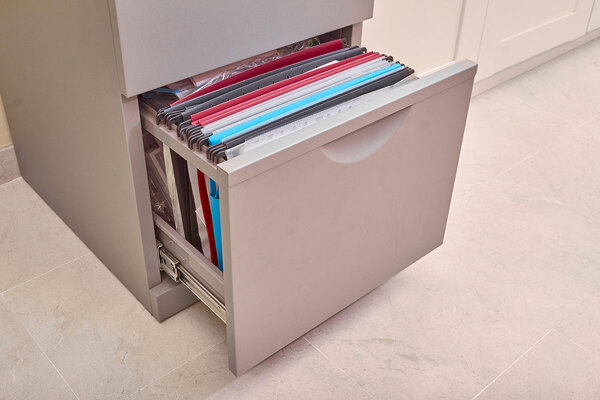You are viewing 1 of your 1 free articles
Regulatory judgements: London council breaches Home Standard after safety checks missed on thousands of homes
A London council has breached the English regulator’s Home Standard after it was found the authority had failed to carry out crucial health and safety checks on thousands of its homes, the latest judgements have revealed.
A judgement published by the Regulator of Social Housing (RSH) on Wednesday revealed that the Royal Borough of Greenwich had breached the Home Standard, and as a result the consumer standards, after an investigation found the council had failed to carry out fire, electrical, water and safety checks across its properties.
The report into Greenwich Council broke down the litany of issues with its health and safety work and included more than 400 outstanding fire risk assessments, while hundreds of high-risk remedial actions highlighted by completed assessments were left outstanding.
It also highlighted that more than 10,000 of its domestic properties did not have a current electrical condition report, while more than 1,000 of its communal spaces had not had these checks carried out.
In addition to this, there were outstanding asbestos surveys that had not been carried out on hundreds of blocks and 300 overdue high-risk remedial actions had not been completed since July 2019.
Greenwich Council did not have up-to-date water risk assessments for 80 residential blocks.
All of these are legal requirements under various pieces of legislation, including the Landlord and Tenant Act and the Control of Asbestos Regulations.
The findings came after the council self-referred to the regulator in May 2022 after it had identified a number of areas where it could have potentially breached the Home Standard.
To breach the Home Standard, the RSH must believe a provider has breached the serious detriment test against tenants.
The regulator said Greenwich Council had started to put in place a programme to rectify the failures and assured the RSH that it was taking action to remedy the issues. As a result of this, the regulator decided against statutory action at this stage.
Kate Dodsworth, director of consumer regulation at the RSH, said the council’s failure to meet health and safety requirements has put tenants at potential risk and it would be monitoring the authority closely as it takes action to put things right.
A spokesperson for Greenwich Council said: “We take residents’ safety extremely seriously and are currently rapidly addressing the backlog.
“We have already completed some of the outstanding actions needed and residents will have seen work being carried out in their home or estate over the past few months.
“We have also implemented an action plan to improve our safety work in the long term, with checks in place to make sure we are effective and will continue to work closely with the Regulator of Social Housing on this issue.”
They added that residents should contact the council if they have any questions or concerns about the safety of their homes.
The report on Greenwich Council was one of six narrative judgements published by the regulator. Among the judgements was the news that Industrial Dwelling Society (IDS) received downgrades for both the governance and financial viability gradings – receiving a G2/V2 rating.
This means the 1,400-home landlord meets the requirements of the Governance and Financial Viability Standard, but could improve some aspects of its governance arrangements to support continued compliance.
The decision to downgrade IDS came following a self-referral by the association in February after damp, mould and condensation issues were found in one of its London blocks. At the time the RSH judged that IDS had breached the Home Standard; this was announced in June.
However following further engagement, it was found that concerns about repairs and the condition of homes were raised several years ago, and while some work was carried out, the landlord did not fully address these.
Since most of its stock was built between 1895 and 1934, IDS identified the age of its stock as a key risk, but the board failed to ensure that sufficient plans for asset improvement had been made in the business plan. The board had been aware of the problem since April 2021 but failed to take any action in a timely manner.
IDS was given a V2 for financial viability, with the regulator saying that while it had the financial capacity to deal with a reasonable range of adverse scenarios, the association still had material exposures.
The regulator said that while IDS had security in place to meet its covenants, the decision to improve stock conditions would result in increased investment and put pressure on interest cover ratios. The RSH also said that these costs may increase further as the provider progresses its stock condition survey programme.
Railway Housing Association (RHA) saw its financial viability rating downgraded from V1 to V2. This is because of increased investment in its existing homes, including a programme of carrying out energy-efficiency improvements.
This investment substantially reduces headroom on RHA’s tightest interest covenant and means it can only absorb a limited amount of stresses. As a result of this, the provider has material risks that it needs to manage to ensure continued compliance.
However, the regulator said the landlord’s financial plans are consistent with and support its financial strategy. In addition, there is an adequately funded business plan in place, sufficient security and ongoing compliance with financial covenants is forecasted.
RHA’s existing G1 grade for governance was also confirmed.
Wirral-based 13,000-home association Magenta Living had its grade for governance upgraded from G2 to G1 and retained its V1 grade for financial viability.
A previous regulatory judgement in August 2018 identified weaknesses in Magenta’s reporting on loan covenant compliance and on the performance of subsidiaries. It also highlighted that the landlord needed to strengthen its stress-testing, including developing triggers and mitigation strategies.
In April 2019, the RSH found Magenta had breached the Home Standard and risked the potential for “serious detriment” to its tenants over its electrical inspection programme.
However, based on engagement and an in-depth assessment (IDA), the regulator said it now has assurance that Magenta has addressed these issues.
“There have been significant changes to Magenta’s board and executive leadership over the past year.
“Board skills now align more closely with the activities that Magenta undertakes and this has facilitated improved scrutiny and challenge of performance,” the latest regulatory notice said.
It also said board oversight of landlord compliance has been strengthened and that Magenta has improved the quality of reporting, stress-testing and mitigation planning.
Magenta’s financial viability grade stayed the same because the regulator has assurance that the association’s financial plans are consistent with and support its financial strategy.
Ged Lucas, chair of Magenta, said: “It is great news that the regulator has recognised the board’s improved approach to scrutiny and challenge of performance as well as strengthening our oversight of compliance.”
Keith Wrate, interim chief executive of Magenta, said: “We are really pleased the regulator is assured that we have improved the quality of reporting, stress-testing and mitigation planning.
“When combined with our recent refinancing to help build 1,000 new homes and tackle our climate change ambitions, this judgement will put my successor in an excellent position to take Magenta forward towards an exciting and successful future once they are appointed.”
Ongo, which has properties in North Lincolnshire and Yorkshire, had its governance rating upgraded from G2 to G1 and its V1 financial viability grading reconfirmed.
Following an IDA, the regulator found that the 10,000-home landlord has simplified its governance structure and that changes being implemented to Ongo’s legal structure which will result in a registered group parent.
The upgrade marks a turnaround for the association, which was given a G3 rating – meaning it did not comply with the regulator’s governance requirements – in February 2019.
The landlord referred itself to the RSH after an unnamed executive was allowed to access their pension before it matured.
Ongo was then upgraded from G3 to G2 in November 2020, with the regulator stating that the landlord’s new group structure better aligns with an updated strategy that places greater emphasis on its core purpose.
The latest judgement said the board is now focused on the delivery of its strategic objectives and that Ongo has an adequately funded business plan that is forecast to continue to meet its financial covenants under a wide range of adverse scenarios.
G15 landlord Notting Hill Genesis (NHG) has retained its governance and financial viability grades of G1 and V2.
However, the reasons the 66,000-home landlord has a V2 grade have changed because it has “refocused its strategic priorities” and now plans to increase investment in its current stock to meet energy efficiency, fire safety and building safety requirements.
The regulator has judged that these additional costs will “negatively impact” on NHG’s financial performance, including interest cover from its core social housing.
“NHG’s significant ongoing development programme exposes it to commercial sales markets,” according to the notice.
The regulator added that the landlord needs to manage material risks relating to planned investment in its existing stock and to its “large and diverse” development programme.
The RSH said it has assurance that NHG’s governance arrangements enable it to “adequately control the organisation and to continue meeting its objectives”.
The regulator also published strapline judgements, in which Silva Homes and Two Rivers Housing retained their G1/V1 ratings.
Sign up for our regulation and legal newsletter
Already have an account? Click here to manage your newsletters











